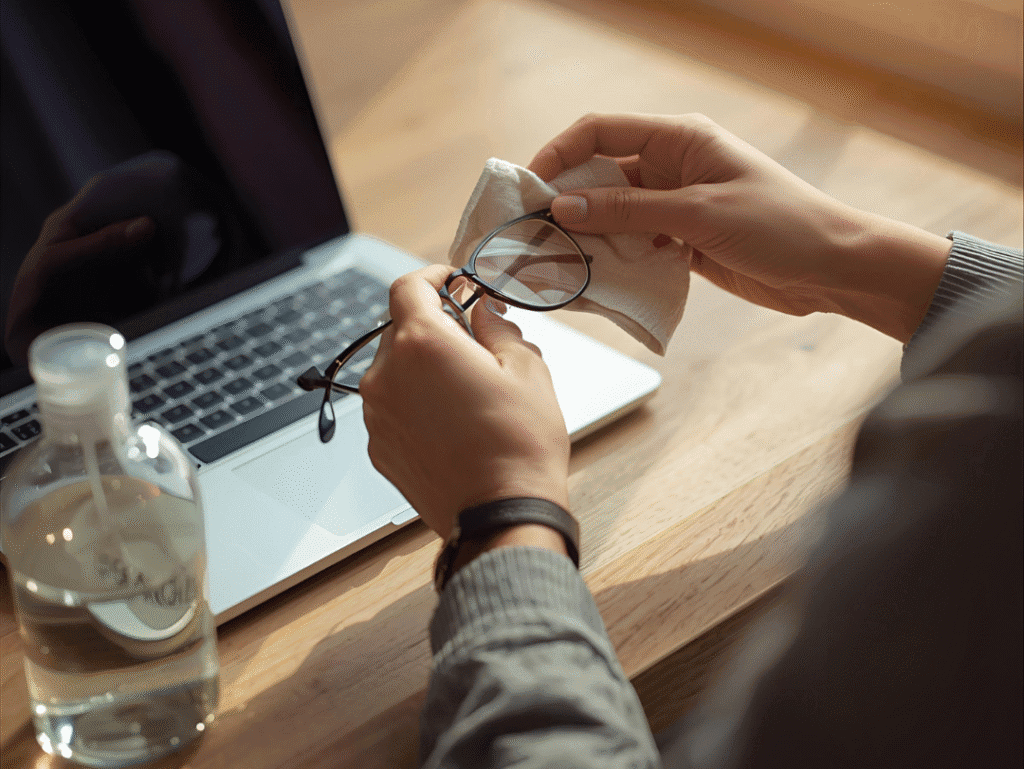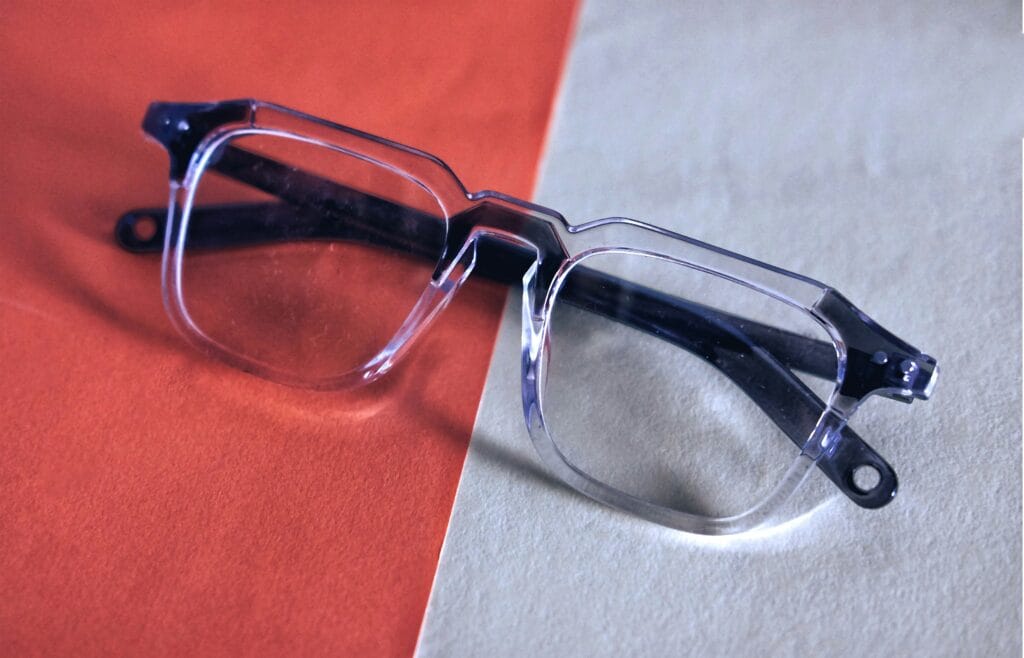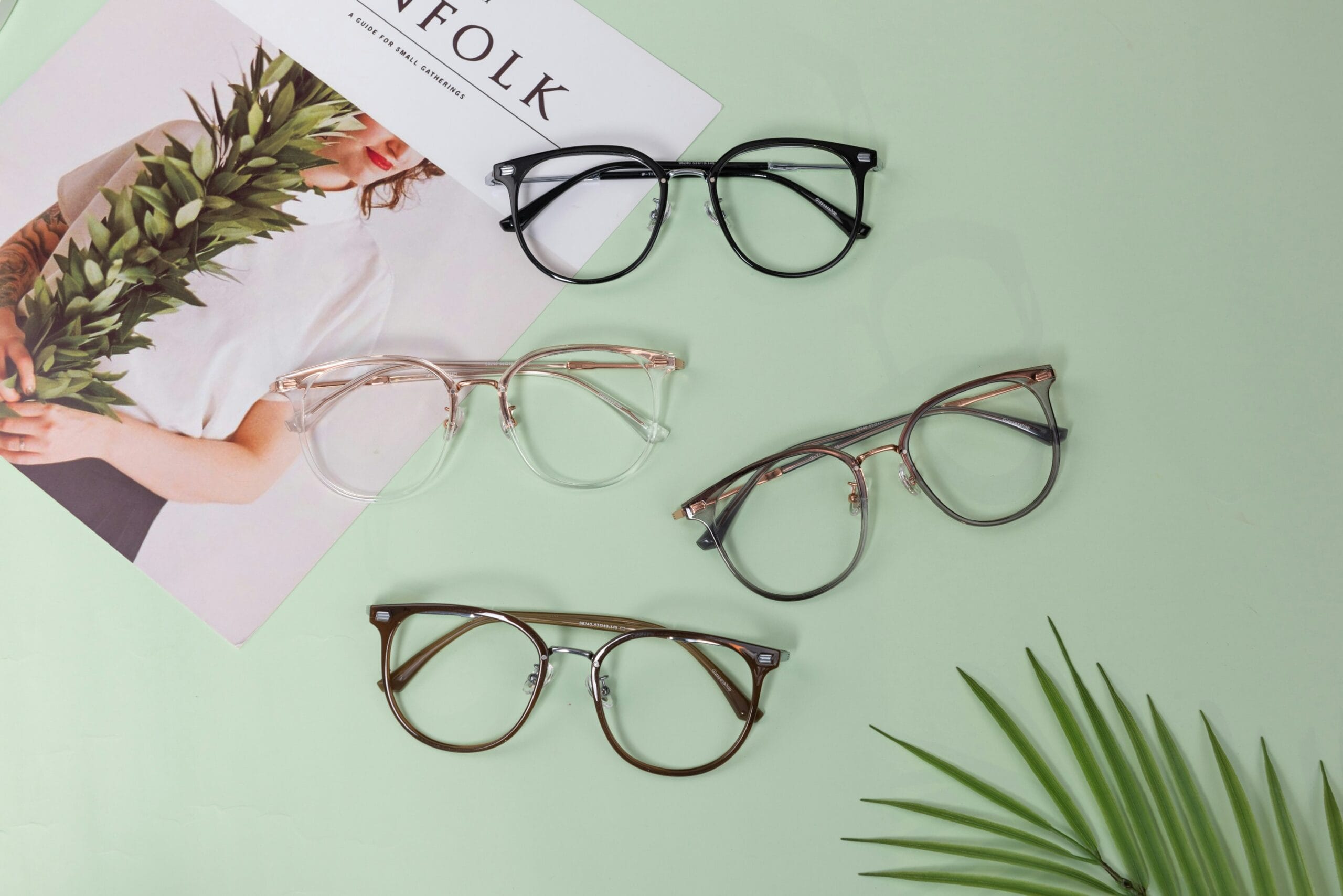Introduction
The cleanliness of your glasses is very important for good vision. Strained and aching eyes may be caused by dirty lenses. Cleaning will help not only to provide greater clarity but also extend the life of your eyeglasses. Some people don’t know the right way to clean them.
This guide provides you with effective tips for getting spotless, clean glasses. You’ll learn how to maintain them in top condition. From choosing the right cleaning materials to avoiding common mistakes, we’ve got you covered. Let’s dive into the essentials of glasses cleaning.
Why Proper Glasses Cleaning Matters
Clean glasses, free of smudges and dirt, provide proper vision. With clarity, eye strain is reduced, enhancing your comfort level. Proper glasses care also prolongs the life of both your lenses and frames. With frequent cleaning, you can avoid scratches and coating damage.
From my personal experience, cleaning eyeglasses regularly has many benefits:
- Reduces the risk of headaches from eye strain.
- Preserves coatings and lens quality.
- Keeps frames and lenses free of oils and dirt.
Taking these steps ensures crystal clear glasses.
Preparing to Clean Glasses: What You’ll Need
After consulting a professional optician, I found that cleaning your glasses effectively necessitates gathering the right supplies. The right tools ensure a scratch-free cleaning process, leaving your lenses sparkling.
Here’s what you need:
- Lukewarm water
- Mild dish soap
- Microfiber cloth
- Soft-bristled toothbrush (for frames)
- Lens cleaning spray (optional)
A microfiber cloth is essential to avoid scratches while drying and cleaning glasses. Mild soap is used to remove oils and dirt without damaging lens coatings.

Step-by-Step: How I clean my anti-reflective lenses / Glasses
- Start by rinsing your glasses under lukewarm water. This initial rinse helps remove dust and debris that may scratch the lenses.
- Put a few drops of mild dish soap on each of the lenses. Gently rub the soap into the lenses with your fingers, making sure to touch all of the areas.
- Rinse the lenses well under running water; be sure to remove all soap residue, as this may cause streaks if allowed to dry.
- Use a soft-bristled toothbrush to clean around the nose pads, hinges, and frames, removing any oil and dirt buildup.
- Rinse the entire pair of glasses a final time. This will make sure each part is well cleaned and that the soapy residue has been removed.
- Take a clean microfiber cloth and gently pat the lenses dry. Avoid rubbing, which can cause scratches or streaks.
- To wrap up, inspect your glasses under a bright light. This helps ensure there are no missed spots or smudges left on the lenses.
Key steps for spotless clean glasses:
- Rinse with lukewarm water
- Use mild dish soap
- Clean frames with a toothbrush
Final touches:
- Rinse thoroughly
- Dry with a microfiber cloth
- Inspect lenses for clarity
Drying Glasses After Cleaning
Properly drying your glasses will keep them free from streaks. For this, use a microfiber cloth that is lint-free. This kind of cloth will absorb the moisture without leaving any fibres on your lenses.
Avoid using paper towels or your shirt to dry the lenses. These materials can scratch the surface and leave annoying fibres on the lenses.
For the final touch, gently blot the lenses with the cloth. Ensure no residue remains on the lenses before wearing them again. Proper drying enhances clarity and keeps your lenses pristine.
Key drying tips:
- Use a microfiber cloth
- Avoid paper towels
- Gently blot lenses
What to Avoid When Cleaning Glasses
I have learned this from my optician that some household cleaners can harm your lenses. These include ammonia, vinegar, and many all-purpose cleaners. These may remove coatings that could lead to a foggy appearance over time.
Also, avoid the use of harsh materials for cleaning. Things like napkins or fibres from clothing will scratch it.
Here’s a quick list of what to avoid:
- Ammonia and vinegar-based cleaners
- Napkins, paper towels, or clothing
- Abrasive materials or scouring pads
Special Tips for Different Glasses Types
Different types of glasses require specific care. Plastic lenses can scratch easily, while metal frames may rust if not dried thoroughly. It is crucial to tailor your cleaning routine to your specific type of glasses.
For plastic frames, make sure to clean all parts, including the nose pads and hinges. Lenses with anti-reflective coatings need special attention. Use only cleaners designed for anti-reflective coatings to prevent damage.
Here are some tips for different glasses types:
- Plastic Frames: Clean the entire frame and dry well.
- Metal Frames: Ensure to dry to prevent rust.
- Anti-reflective lenses: Utilise appropriate cleaning solutions.

Cleaning Between the Lens and Frame
Dirt and grime may build up between the lens and the frame, which will alter the fitting of your glasses and their general appearance. Cleaning them regularly can help keep that area spotless.
A soft-bristled toothbrush is ideal for reaching these tight spaces. Gently scrub around the frame and lens junction. This technique ensures no debris is left behind.
Key steps to clean between the lens and frame:
- Use a soft-bristled toothbrush.
- Gently scrub around the junction.
- Wipe with a microfiber cloth.
Can You Use Alcohol, Glass Cleaner, or Windex?
The most frequently asked questions are whether alcohol, glass cleaner, or Windex is safe to use on glasses. These may be convenient cleaners, but they can damage lenses.
Alcohol can clean, but it may damage coatings on lenses. Similarly, glass cleaners often contain ammonia, which is too harsh for eyeglasses. It’s best to avoid these for delicate lenses.
Consider these points when choosing cleaners:
- Alcohol may harm lens coatings.
- Glass cleaner may contain harmful chemicals.
- Opt for solutions made for eyeglasses.
Keeping Glasses Clean While Travelling
Travelling presents unique challenges for glasses wearers. Dust and fingerprints can quickly accumulate, hindering vision.
It’s crucial to pack a small cleaning kit for trips. Consider including:
- Travel-sized lens cleaning spray
- A microfiber cloth
- Pre-moistened lens wipes
These items help ensure your glasses remain clean and clear wherever you go.
Maintaining Spotless Glasses: Daily Habits
Incorporate simple routines into your day to keep glasses spotless and clear. Regular cleaning extends their life and boosts vision clarity.
Develop these habits to maintain pristine lenses:
- Clean glasses each morning
- Use a microfiber cloth for wipes
- Store glasses in a protective case when not in use
Consistency is key in preserving your glasses’ condition and clarity.
When to Seek Professional Cleaning
If your glasses are severely soiled or damaged, professional cleaning is advisable. Opticians can safely restore them to pristine condition.
Conclusion: Clear Vision Every Day
Achieving spotless glasses is easier than you may think once you know the right methods. Cleaning them regularly keeps your lenses clear and can extend their life. Follow these tips as part of your daily routine for clearer vision. Protect your investment and enjoy improved optical health.
You can also read this article by a renowned optometric university: Clean your eyeglasses
Frequently Asked Questions (FAQ)
How can I clean glasses without a microfiber cloth?
Alternatively, if you do not have a microfiber cloth, you can wash the lenses with lukewarm water together with mild soap on your fingertips. You should dry the lenses with a clean cotton cloth to avoid any scratches from the formation of lint.
What is the best solution for cleaning eyeglasses?
The ideal method for cleaning lenses is using an eyeglass cleaner that is pH-balanced, or a solution made from mild soap and warm water. Do not use domestic cleaners such as window spray or white vinegar on lenses, since these can affect the lens coatings.
How do you clean the glasses between the lens and the frame?
Use a soft toothbrush or a cotton swab with mild soapy water to clean the areas between your lenses and frames. Rinse well with clean water and dry using a microfiber cloth for a streak-free shine.
How do I clean glasses with spray cleaner?
You would spray a little lens cleaner directly on each side of the lenses, then wipe them down with a clean microfiber cloth in a circular pattern.
Can I use alcohol to clean glasses?
Isopropyl alcohol (70% concentration) can also be employed in moderation in disinfecting glasses, although it is recommended that it never be used on lenses where anti-reflective coatings have been applied.
How often should I clean my glasses?
You need to clean your glasses daily so that you can see clearly without any hindrances, such as the formation of oil or dust on the lenses.
How can I clean my glasses at home naturally?
Add a few droplets of light detergent soap to warm water, wash your glasses well, and then wipe with a microfiber cloth. In addition, it is more eco-friendly since it doesn’t require any chemicals for it to work effectively.






1 thought on “10 Essential Tips for Spotless Glasses Cleaning”
I discovered your blog site on google and check a few of your early posts. Continue to keep up the very good operate. I just additional up your RSS feed to my MSN News Reader. Seeking forward to reading more from you later on!…